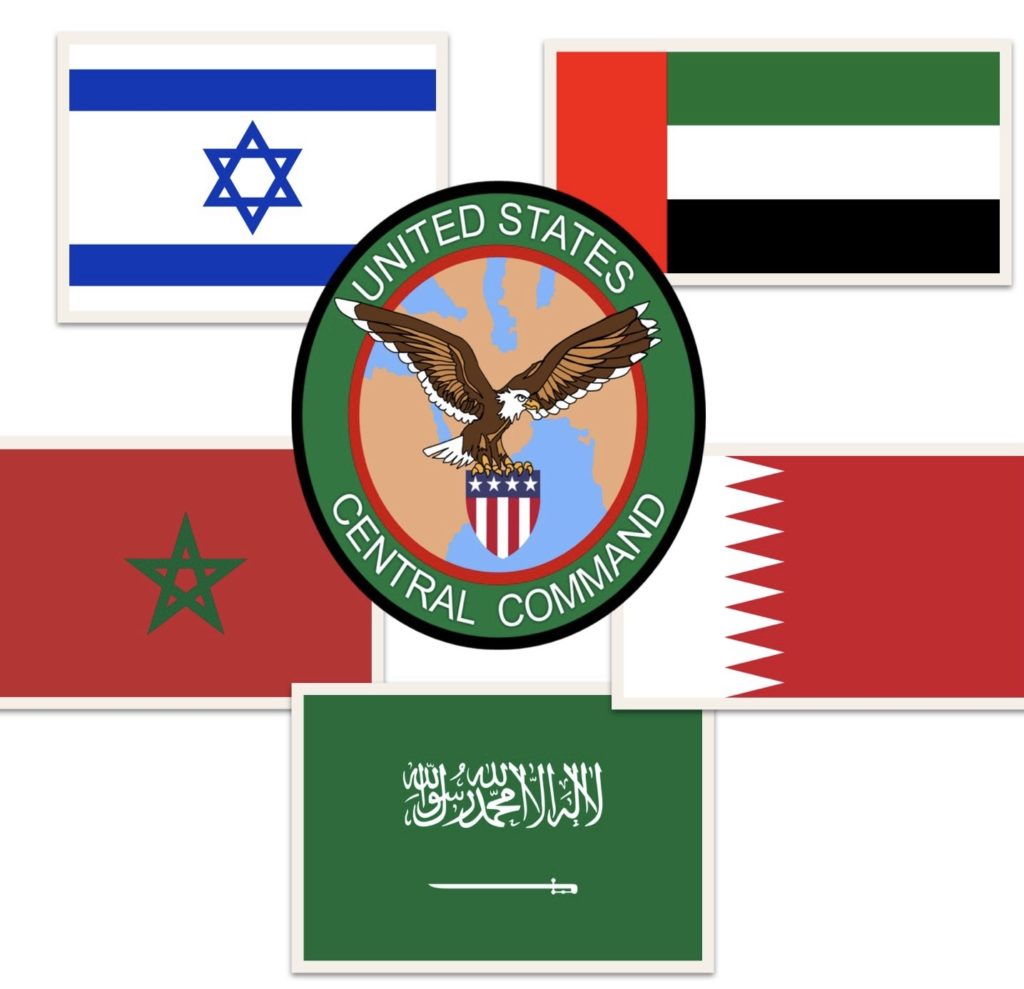On the surface, it appears as if the July visit by U.S. President Joe Biden to Saudi Arabia, following his visit to Israel, did not meet expectations about tangible progress towards creating a Middle Eastern NATO-like military alliance.
But behind the scenes, it was likely unrealistic at this stage to expect Riyadh to make public all of the potential ways it might, or already has begun to, cooperate with Israel in the defense realm, against the common adversary: Iran and it’s radical Shi’ite regional axis.
Saudi Arabia, whose cities, airports, and oil sites have come under regular missile and UAV attack by Iran-backed Houthis in Yemen, is clearly interested in seeing Iran contained, while also avoiding an all-out war with the Islamic Republic.
The Kingdom of Saudi Arabia’s conservative social structure, while changing under the leadership of Crown Prince Muhammad Bin Salma, also means that the country is unable to change its public orientation to Israel overnight, in the same manner that the United Arab Emirates and Bahrain did after signing the August 2020 Abraham Accords.
The Saudi leadership has indicated that it requires progress on the Israeli – Palestinian front before it can go further in normalization.
While bringing Riyadh to the Abraham Accords table is a top Israeli strategic goal, due to the military, economic, and political power the Saudi state wields in the region, the ability of Israeli and Saudi Arabia to cooperate in quieter ways against Iran likely goes significantly deeper than meets the eye.
The September 2021 shift of Israel from the area of responsibility of the U.S. Military’s European Command (EUCOM) to Central Command (CENTCOM), the latter being responsible for the Middle East, marked a major milestone in the development of a Middle Eastern architecture.
It allowed for much more substantial U.S.-led coordination of operational military activities among Israel, pragmatic Gulf states, and American forces in the Middle East against the Iranian-Shi’ite axis.
That makes a collective approach in the region towards common threats smoother between Israel, the United Arab Emirates, and Bahrain, but also, likely with Saudi Arabia.
The Israeli defense establishment has been working closely with CENTCOM for years before Israel’s shift into its area of responsibility, but now that the IDF is a formal CENTCOM partner, new opportunities have opened up.
This includes joint maritime and aerial training exercises, strategic planning, and work on drawing up regional cooperation doctrines. The sharing of intelligence on enemy activity, and the transfer of technological capabilities are all likely on the table – as Morocco’s reported purchase of Israel Aerospace Industry’s advanced Barak MX air and missile defense system in February 2022 illustrates.
Israel’s move to CENTCOM formalizes joint military drills involving American, Arab, and Israeli forces, creating a platform that can be used to develop common missile defense cooperation, as well as cooperation on maritime security, cyber defense, counter-terrorism, and special operations.
This can form the basis of an anti-Iranian bloc whether it is official or not.
While every nation in this bloc is responsible, first and foremost, for creating solutions to its challenges individually, the creation of regional arrangements is already underway between Israel and Sunni Gulf states, despite the fact that each country has its own threat profile perception when it comes to the Iranian axis.
Undoubtedly, the IDF can provide an array of capabilities to this bloc.
Just as Saudi Arabia is now providing overflight rights to civilian airliners flying in its air space, it could, theoretically, do the same for IAF flights, as could other Gulf states that are close to Iran.
Increasingly intimate joint training, such the November 2021 US, Israeli, Emirati, and Bahraini joint navy drill in the Red Sea, forms a key pillar of this emerging bloc.
The acquisition of Israeli air defense systems, such as Iron Dome, by Gulf states remains on the agenda, as well as the transfer of other Israeli defense technology.
As time goes by, the comparative advantage of each partner in this alliance becomes clearer to all.
Israel is well position to supply UAV interception capabilities to its new Gulf friends, while every country that is under CENTCOM’s area of responsibility can share tracking information of UAV and missile activity by Iran and its proxies, creating a regional air defense network.
Many of these activities can be expected to occur away from public view, and therefore, official statements by heads of states, including that of Saudi Arabia during Biden’s recent visit, likely only reflect a part of the full picture.
Overall, the Abraham Accords are increasingly becoming a daily tool to facilitated Israeli – Arab joint operations and a framework to promote regional stability in the face of Iranian aggression. Military to military cooperation between Israel, the UAE, and Bahrain are growing closer in plain sights, and daily IDF operations are increasingly being integrated with regional, CENTCOM-led frameworks.






